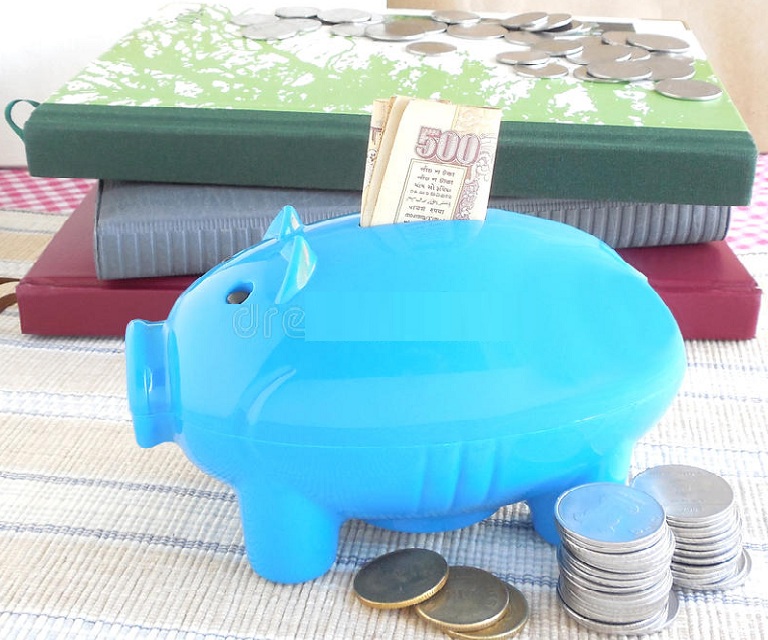Fixed Deposits are by far, purportedly the most preferable and secured investment alternative in India. FDs or Fixed Deposits are financial instruments provided by banks and NBFC’s. Herein deposits are given a reasonably high-interest rate in comparison to regular deposits made in savings accounts, in banks.
The minimum tenure for a Fixed Deposit is 7 days, while the maximum goes up to 5 years. In any case, the feature that binds investors to consider fixed deposits as the option for investments is the guarantee of returns. This feature of assured returns is absent if one chooses to invest in instruments that are market dependent.
However, apart from higher FD interest rates, there are some other points of evaluation one might stop to consider before investing in fixed deposits.
A few of these infrequent considerations are enumerated below:
-
Taxes on Interest

Interest income obtained from fixed deposits is taxable at a rate of 10%, irrespective of FD interest rates. When total interest income exceeds Rs.10,000, TDS is deducted at a rate of 10% in case of Bank FD’s. In case of Company FD’s, the limit is Rs.5,000.
However, if an investor falls in the zero/nil tax bracket, he can avoid this deduction of tax by submitting Form 15G in duplicate. Senior citizens have to submit Form 15H.
-
Indicating the Name of the Nominee

Enrolling a nominee is always advisable while booking a fixed deposit. In case of sudden demise of the FD holder, the nominee can claim the deposit.
Alternatively, one can also opt for booking a deposit jointly with another family member as a buffer against such contingencies.
-
Advanced Calculation of Returns

To gain clarity about income from investment, one can calculate the prospective returns on fixed deposits with the help of an online FD calculator.
The calculator helps an investor gain accurate insight on the returns that might accrue on the maturity of the FD. Therefore, he/she can plan his investment accordingly.
Most of the above-listed investment instruments have been on the market for some time only. Calculate and research the best path for your money so that a wise investment brings growth and future security.
-
Regulations Governing Investments in Fixed Deposits

The statutes that cover these investments are also different. FDs booked in banks are covered under ‘The Banking Regulation Act, 1949’. Company fixed deposits are governed under ‘The Companies’ Act’.
-
Flexibility of Tenor
This is a characteristic that impacts both FD interest rates and amount of investment on the part of the investor. The prospect can choose any tenure he likes between 12-60 months. Institutions like Bajaj Finance offer a special rate of interest on fixed deposits having 15-months tenor. This interest rate is higher than the regular 12-month FD interest rates.
Thus with such special offers, one can easily maximize his/her returns and thereby grow the total funds at his disposal.
Few other checkpoints that a prospective investor must keep in mind are:
- Ease of management of the invested corpus.
- Assurance of returns.
- The credibility of the company in which the funds are being invested.
- Any deductions in cases of probable pre-closure.
However, company fixed deposits and bank fixed deposits have a marked distinction between them.
This point of difference pertains to the most important and attractive feature of these instruments of investment, and that is the rate of interest.
The company fixed deposits, especially fixed deposits from companies like Bajaj Finance, have considerably high-interest rates as compared to banks. Particularly for senior citizen investors, the FD interest rates from company deposits are higher, when compared to bank fixed deposits.
Fixed deposits also provide assured returns, as mentioned earlier, since market fluctuations affect them by the least measure.
In addition to this, financing companies like Bajaj Finserv have the ease of registering for fixed deposits online, which again to customer convenience. Online management of deposit accounts under a single portal is simple and extremely user-friendly.
And with a credit rating of MAAA by ICRA and FAAA by CRISIL, one needn’t worry about the credibility of an institution like this.
Hence, fixed deposits are a very safe investment option. A careful consideration of the above-listed points only adds to the safety of investment, and maximization of returns.



